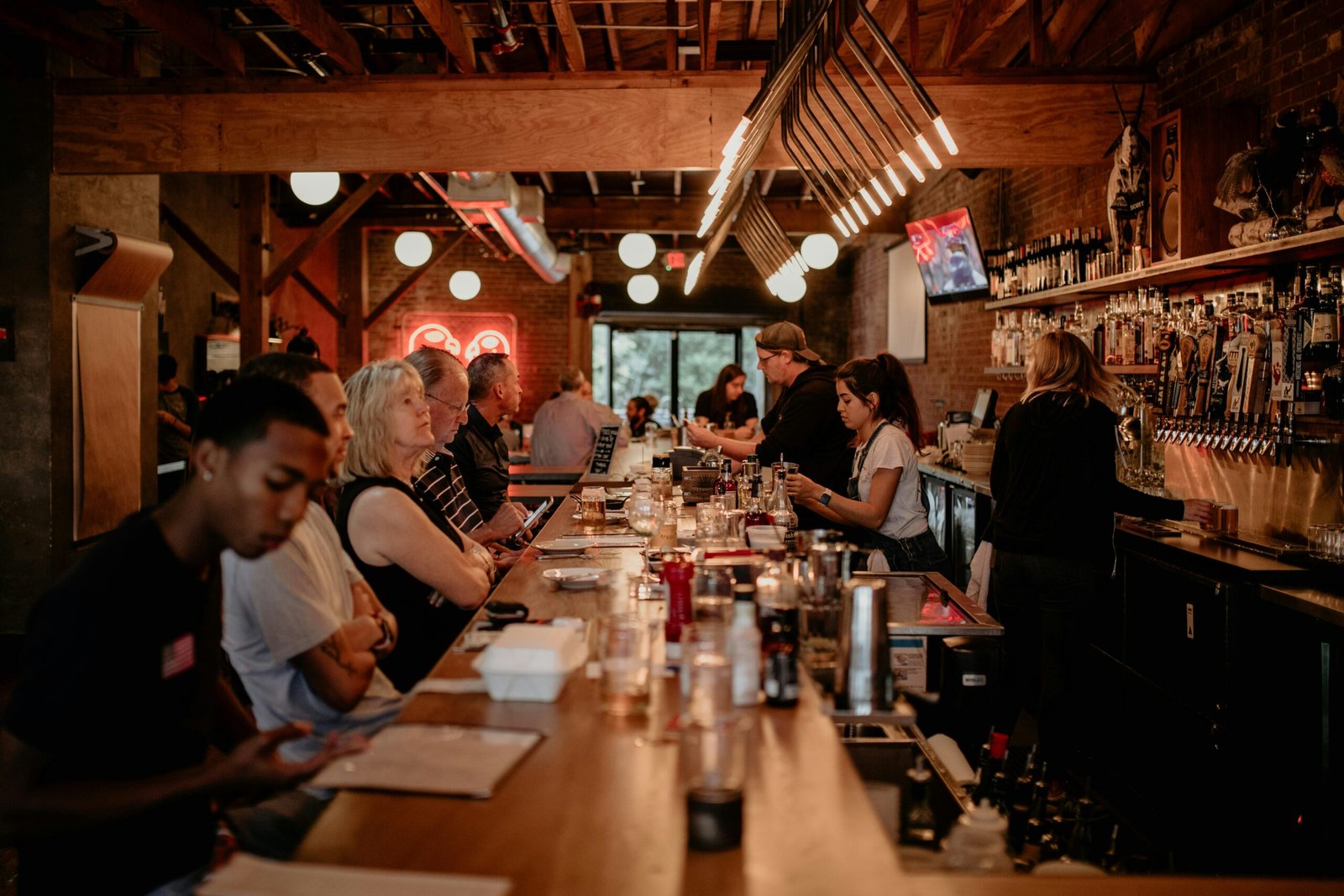
Craft spirits have become increasingly popular among consumers who are seeking unique and high-quality alcoholic beverages. These spirits are typically produced in small quantities using traditional methods, resulting in a product that is distinct in flavor and character. The rise of craft spirits can be attributed to a number of factors, including changing consumer preferences, the desire for locally sourced products, and the demand for artisanal goods.
One of the key characteristics of craft spirits is the emphasis on quality and craftsmanship. Unlike mass-produced spirits that are made using automated processes, craft distilleries take a hands-on approach to production. They carefully select the finest ingredients, often using locally sourced grains, fruits, or botanicals, and employ traditional distillation techniques to create spirits that are rich in flavor and complexity.
Another important aspect of craft spirits is the focus on innovation. Craft distilleries are known for pushing the boundaries of traditional spirits and experimenting with new flavors and techniques. This spirit of innovation has led to the creation of a wide range of unique and exciting products, from barrel-aged gins to smoked whiskeys to fruit-infused vodkas.
The impact of craft spirits on the industry has been significant. Not only have they captured the attention of consumers, but they have also influenced larger, established distilleries to adapt and innovate. Many big-name brands have started to release their own craft-inspired products in an effort to cater to the growing demand for artisanal spirits.
Furthermore, the rise of craft spirits has had a positive economic impact on local communities. Small batch distilleries often source their ingredients from local farmers, supporting the local agricultural industry. Additionally, these distilleries attract tourists and visitors who are interested in learning about the production process and tasting unique spirits, contributing to the growth of local tourism.
In conclusion, the world of craft spirits is an exciting and dynamic one. From their dedication to quality and craftsmanship to their spirit of innovation, craft distilleries are redefining the spirits industry. Whether you’re a spirits enthusiast or simply curious about trying something new, exploring the world of craft spirits is sure to be a rewarding experience.
Furthermore, the rise of craft spirits can also be attributed to the increasing demand for sustainability and environmental consciousness. Craft distilleries often prioritize sourcing their ingredients locally, reducing their carbon footprint, and supporting local farmers and producers. This commitment to sustainability resonates with consumers who are becoming more conscious of the impact their purchasing decisions have on the environment.
In addition, the craft spirits movement has been fueled by the rise of cocktail culture. As more people become interested in mixology and creating unique cocktails, they are seeking out spirits that offer a distinct flavor profile and enhance their creations. Craft distilleries have capitalized on this trend by producing spirits that are not only delicious on their own but also excel when used in cocktails.
Furthermore, the rise of social media has played a significant role in the popularity of craft spirits. Platforms like Instagram and Facebook have provided craft distilleries with a way to showcase their products and connect directly with consumers. This has allowed them to build a loyal following and create a sense of community around their brand.
Overall, the rise of craft spirits can be attributed to a combination of factors including the desire for authenticity, unique flavor profiles, sustainability, cocktail culture, and the power of social media. As consumers continue to seek out new and exciting experiences, craft distilleries are well-positioned to meet these demands and continue to thrive in the spirits industry.
Environmental Sustainability
Another area where small batch distilleries are making a significant impact is in environmental sustainability. Many of these distilleries prioritize eco-friendly practices and take steps to minimize their carbon footprint.
For example, some small batch distilleries use organic ingredients and sustainable farming practices. They may source grains from local farmers who use regenerative farming techniques, which help to restore soil health and reduce the need for synthetic fertilizers and pesticides. By supporting these sustainable farming practices, small batch distilleries contribute to the overall health of the environment.
In addition, small batch distilleries often prioritize energy efficiency in their production processes. They may invest in renewable energy sources such as solar panels or use innovative technologies to reduce energy consumption. By implementing these measures, they not only reduce their environmental impact but also set an example for larger distilleries to follow.
Economic Impact
Small batch distilleries also have a positive economic impact on their communities. By sourcing ingredients locally and partnering with nearby businesses, they contribute to the growth of the local economy.
These distilleries often attract tourists and visitors who are interested in experiencing the unique flavors and craftsmanship of their spirits. This influx of visitors can boost the local tourism industry, leading to increased revenue for hotels, restaurants, and other businesses in the area.
Furthermore, small batch distilleries often create jobs in their communities. From distillers and production staff to tasting room attendants and sales representatives, these businesses provide employment opportunities for local residents. This not only helps to stimulate the local economy but also fosters a sense of pride and community among the workforce.
In conclusion, small batch distilleries have had a profound impact on the spirits industry. Through their innovation, focus on quality, community engagement, environmental sustainability, and economic contributions, they have brought a fresh perspective to the world of spirits. As consumers continue to seek out unique and authentic experiences, the influence of small batch distilleries is likely to grow even further.
The Future of Craft Spirits
The future of craft spirits looks bright. As consumer preferences continue to evolve, there is a growing demand for unique and artisanal products. Small batch distilleries are well-positioned to meet this demand, thanks to their commitment to quality, innovation, and community engagement.
However, it is important to note that the craft spirits industry still faces challenges. One of the main challenges is the increasing competition from larger distilleries that are trying to capitalize on the popularity of craft spirits. These larger distilleries may use marketing tactics to create the illusion of being small and artisanal, which can make it difficult for consumers to distinguish between genuine craft spirits and mass-produced imitations.
Despite these challenges, small batch distilleries continue to thrive and make a big impact in the spirits industry. Their dedication to quality and craftsmanship sets them apart and ensures that they will remain a force to be reckoned with.
In addition to competition from larger distilleries, craft spirits also face challenges in terms of distribution. Unlike their mass-produced counterparts, small batch distilleries often have limited resources and distribution networks. This can make it challenging for them to reach a wider audience and expand their market share.
However, the craft spirits industry has found innovative ways to overcome these distribution challenges. Many small batch distilleries have embraced e-commerce platforms and direct-to-consumer sales, allowing them to reach customers directly and bypass traditional distribution channels. This not only helps them increase their profit margins but also allows them to establish a direct connection with their customers, fostering loyalty and brand advocacy.
Furthermore, craft spirits have gained a strong presence in the hospitality industry. Bartenders and mixologists are increasingly incorporating craft spirits into their cocktail menus, recognizing the unique flavors and qualities that these products bring to their creations. This partnership between craft distilleries and the hospitality industry has created a symbiotic relationship, with both parties benefiting from the collaboration.
Looking ahead, the future of craft spirits is likely to be shaped by ongoing innovations and collaborations. Craft distilleries are constantly experimenting with new ingredients, aging techniques, and flavor profiles, pushing the boundaries of what is possible in the spirits world. Additionally, collaborations between craft distilleries and other artisans, such as brewers and winemakers, are becoming more common, resulting in unique and exciting products that appeal to a wide range of consumers.
Ultimately, the future of craft spirits is bright and promising. Despite the challenges they face, small batch distilleries continue to thrive and innovate, capturing the hearts and palates of consumers who appreciate the artistry and dedication that goes into each bottle. With their commitment to quality, innovation, and community engagement, craft distilleries are poised to play a significant role in shaping the future of the spirits industry.


